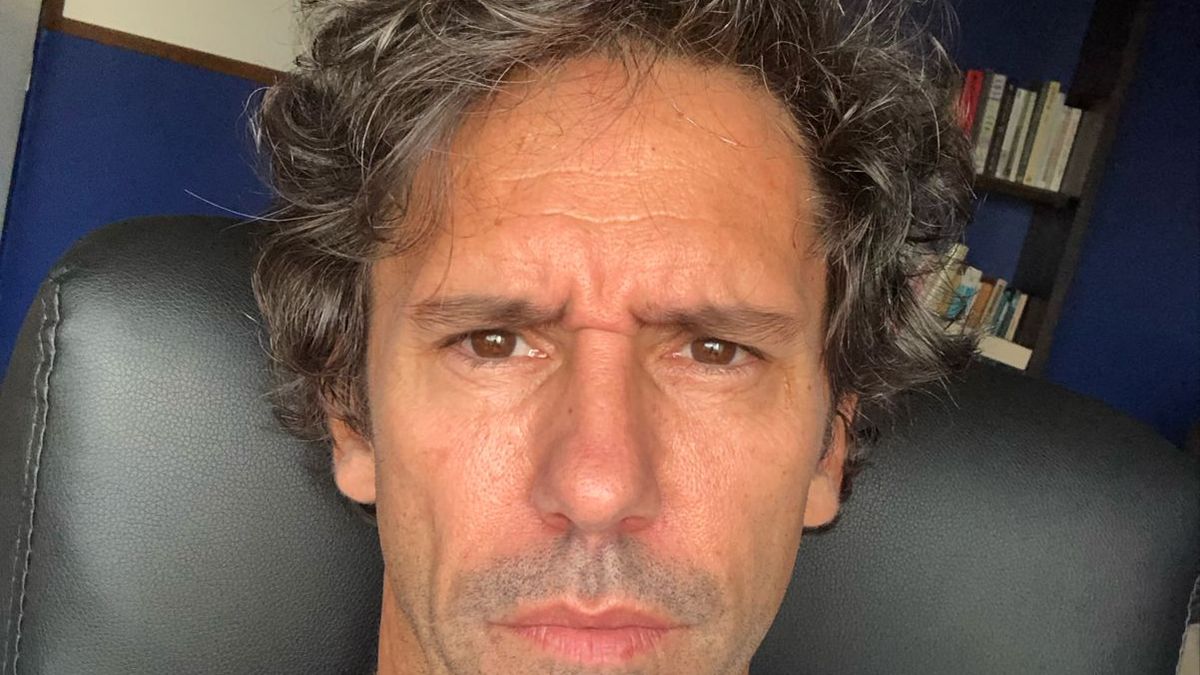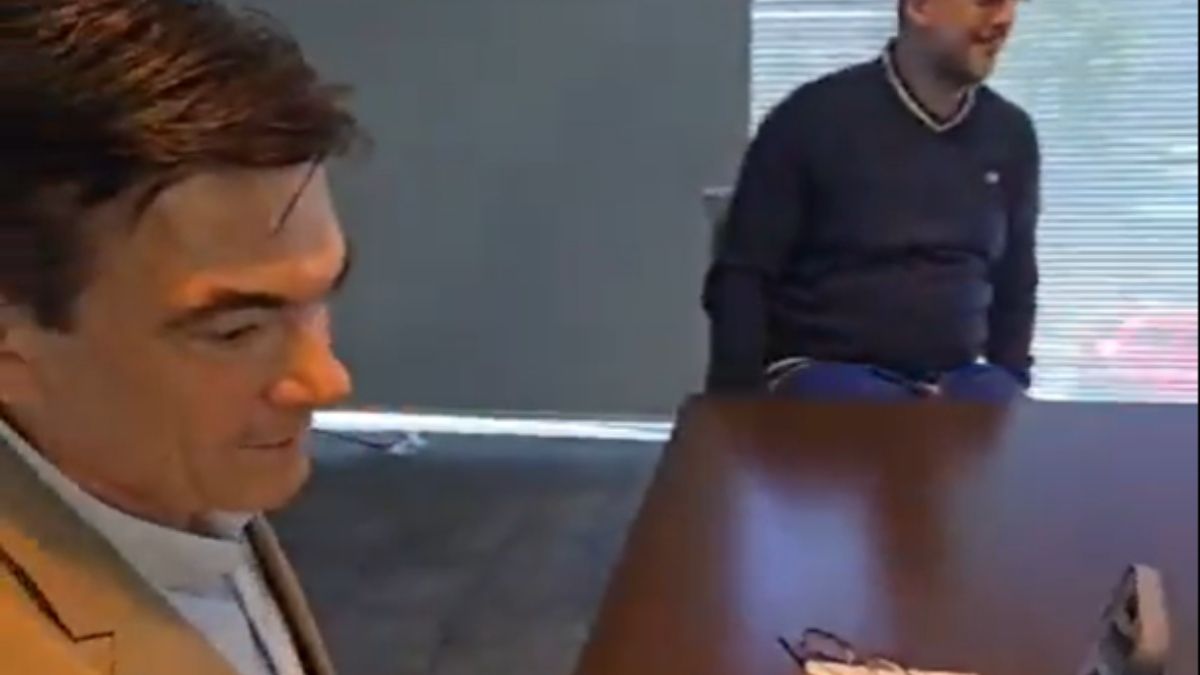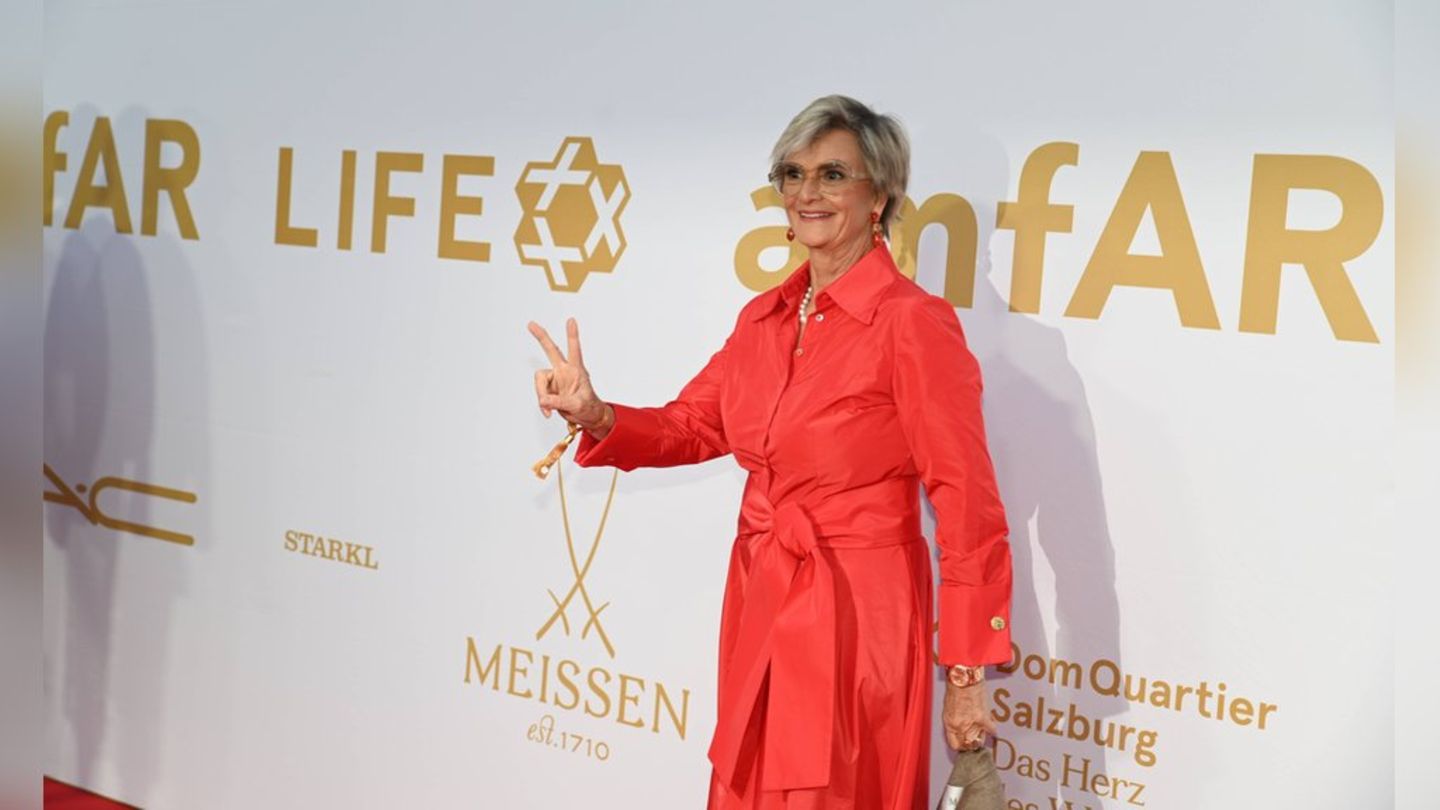The complicit relationship of a mother with her daughter, to help her overcome her isolation, is transformed in the most unexpected way into “Cyrana” (Planeta) by Gastón Portal, debut film of the director, screenwriter and producer of film and televisionthat He participated in “Semanario Insólito” and “PNP” with his father, Raúl Portal, and built the production company GP Medios, which he sold, made television series, and after a period in Miami, returned to the country. We dialogue with him.
Journalist: What led you to portray this shy, withdrawn teenager, and her mother, who seeks to help her get out of that?
Gaston Portal: Emilia’s thing is more isolation than shyness. Her world is the computer, she has no social contact. At school she doesn’t have friends, she has contacts. On the networks she follows everyone, and no one herself. On the computer she makes a comic where she is a ghost. Her mother discovers that. She notices her daughter’s social disconnection and decides to do something. When writing continuously about different topics there is a moment when one realizes that there are two or three dominant themes; In my case it is the relationship of a mother with her son or her daughter. I decided to delve into that.
Q: Why the novel that changes genres? It begins with maternal support and moves on to manipulation, the erotic, the porn, the perverse, the terror, to conclude with the police.
GP: That rollercoaster of genres was taking place, it was the path. It happened to me with “The Magic Night,” the film I wrote and directed, with Natalia Oreiro and Diego Peretti, which begins as a family comedy and turns into a violent drama. That attracts me because I believe that life is a daily permanent mix of genres, as in Joyce’s “Ulysses.” In cinema that is generally contraindicated, but I was in the freedom of a novel.
Q: Did you look for the way of telling to lead you to experience the evolution of the drama?
GP: The entire story is narrated, alternately, in the first person by the daughter and by her mother in short chapters. At first the girl is locked in, stuck. He speaks about her in the first and third person interchangeably. She distances herself from her to look like she’s a lab bug. Until she reaches a certain security thanks to Cyrana, the character that her mother makes her compose for the networks, and especially for her classmates at school, and especially for Lucas, the boy that Emilia likes, for whom she is invisible. If in the end daughter and mother end up speaking together and in the plural, it is because of what they have fallen into, and to what extent a woman and a daughter are not somewhat the same person.
Q: Just as the daughter has relationship problems, the mother also has her own.
GP: That the daughter becomes Cyrana marks the relationship with the Cyrano de Bergerac of the play, with the fact that the mother tells Emilia what her image should be, writes to her what she has to say. The mother speaks through her daughter. She is separated, has problems with her ex, and feels almost old. She seeks to help Emilia, it is not known if she unconsciously intends to test her youth again. When the vampire tastes blood, he no longer turns back. What Cyrano de Rostand does is grooming and today it is punishable by law. What the mother does is punishable by law. Impersonating a minor to seduce a minor is punishable. The intentions are good, it works for the girl, but alternative therapies sometimes bring collateral damage.
Q.: “Cyrana” is your debut…
GP: It’s my first book, I’ve been working as a screenwriter and director for years. To write each story, each bible, as they say when working to present armed content, with definition of the protagonists. I don’t start with a rundown but with a story that allows me to get to know the characters better; When I have them I just start with the script. I did it like that with “Cyrana”, but I went back to the first scenes. I realized that I had to continue unfolding his story, and that it was going to take me more than two hundred pages. That overlapped with a lot of work with my content production company, series. The pandemic helped me. Writing is a hard and methodical task. That’s how I managed to get rid of the non-publication backpack, and I’m already on the next novel.
Q: How did it happen that after selling your production company GP Media, you went to work in Miami and then came back?
GP: Since I was a child I thought I was going to write and direct films. At fourteen years old I entered the world of radio and television accompanying my old man (Raúl Portal) in “Semanario Insólito”. At 16 years old he compiled audios for his radio program. Then came “PNP” (“Forgive Our Sins”), its success led me to set up a production company. I thought that with her I was not going to depend on others and make fictions, it was the other way around, it happened to me like in “Ladrones de medio pelo” by Woody Allen, the production company did not stop growing, we had 250 employees. At one point I kicked the board, sold the production company, and dedicated myself to making series: “The Sonics,” “Babylon,” “The 13 Wives of Wilson Fernández,” “The Last Hour.” During Macri’s government I spent a year and a half without working. The platforms were not yet globalized. I went to Miami and started with Weblits, my current production company and I am my company, which is much more comfortable. I returned to Argentina with the relationships I had established in the United States and Mexico.
Q: What are you writing now?
GP: The script for a horror subgenre film, The Infected. It’s happening to me like with “Cyrana” that I conceived it as a series and it ended up being a novel.
Source: Ambito
I am an author and journalist who has worked in the entertainment industry for over a decade. I currently work as a news editor at a major news website, and my focus is on covering the latest trends in entertainment. I also write occasional pieces for other outlets, and have authored two books about the entertainment industry.




